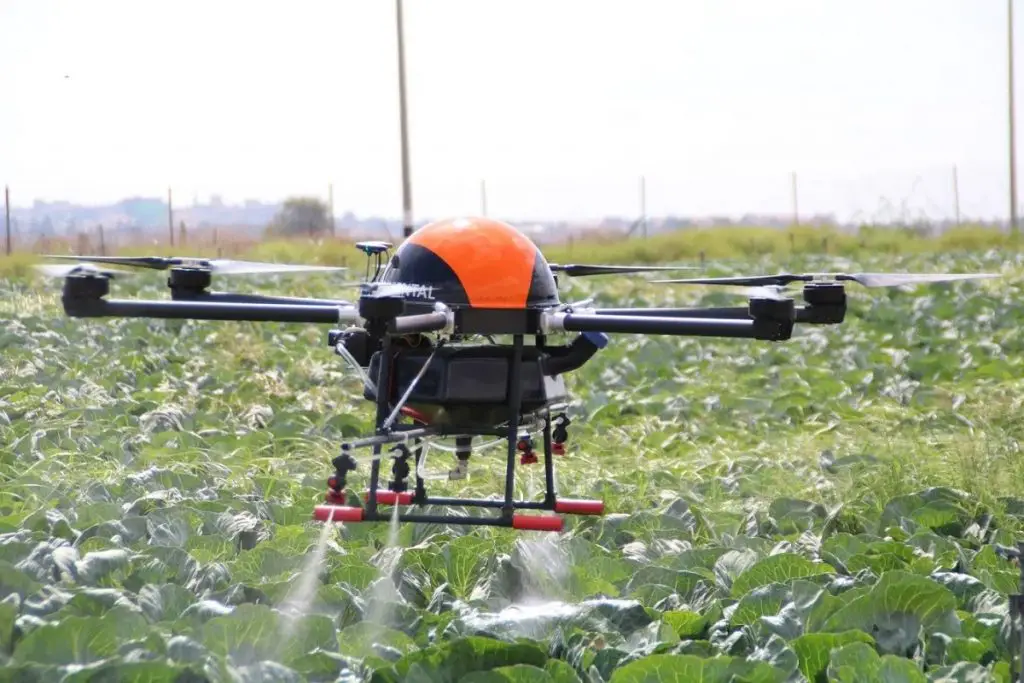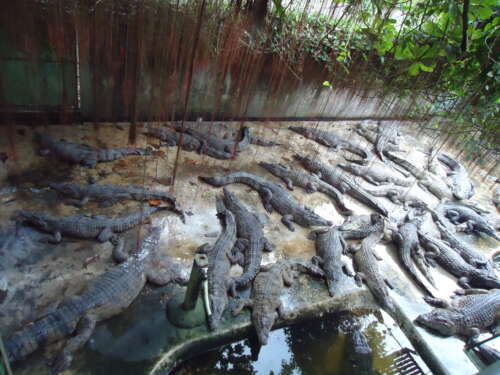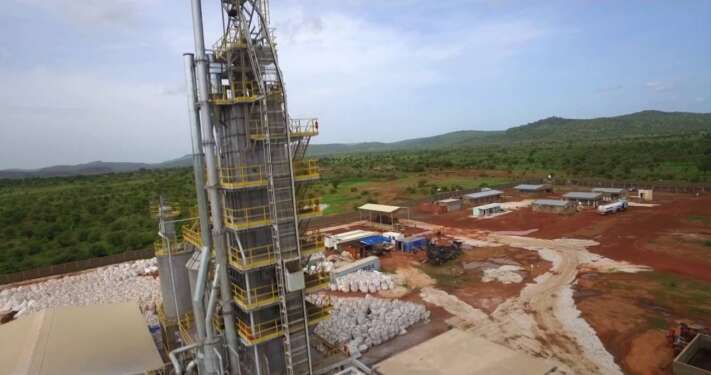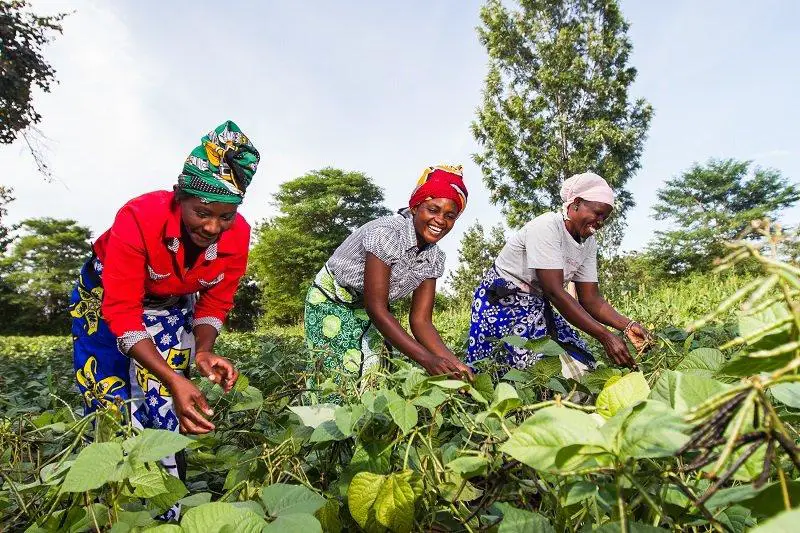- Agribusiness could drive Africa’s economic prosperity
- Dawood Al Shezawi: Why AIM Congress 2024 is the epicenter of global economic and cultural dialogues
- d.light’s 600,000 cookstoves project verified as top source of quality carbon credits
- Artificial intelligence (AI) could create a turning point for financial inclusion in Africa
- AIM Congress 2024: Catalysing global investments with awards
- Kenya’s economic resurgence in 2024
- The most stressful cities to live in 2024 exposed
- Tech ventures can now apply for the Africa Tech Summit London Investment Showcase
Browsing: Agribusiness
Additionally, a 2020 survey by CPS International shows that 30 per cent of employers are unsatisfied with the talents newly-hired graduates cause board from university.
As a result, over the last several years, there has been a gradual change within the perception that young, educated Kenyans have had about what would are called less-glamorous jobs like in agriculture. …
SMEs are the major contributor to investments in the agricultural sector in Africa. In most cases, most African enterprises are run as opportunistic arbitrage entities keen on profiting from demand/ supply disparities because of a lack of substantial capital.
Investment into value addition business is limited in this sector due to challenges arising from lack of finance, poor access to markets, and lack of supporting policies. The continent’s main formal economic activity is agriculture, contributing 80% to the region’s employment.
Snapshot of the industry
Crocodile farming is an agricultural niche that holds vast potential for profit-making and value addition for SMEs. The risk of failure in this market segment is relatively low because of farming support systems and a readily available high-demand market.
The sector generates hundreds of millions in exports through the global demand for crocodile skins.
Other uses and income-generating avenues from this farming venture include …
The high prevalence of aflatoxins in maize and other staple foods in East Africa has become an important obstacle to domestic and regional food trade.
There is however a glimmer of hope for the regional traders as new technologies may have the potential to transform EAC trade procedures and significantly reduce aflatoxin risks in domestic and regional food supply.…
In August 2020, Mali had a bloodless coup carried out by military officers leading to the country’s President Ibraham Boubacar Keita and Prime Minister Boubou Cisse resigning.
The coup came after months of protests against Keita’s administration.
News like this has dominated the country’s narrative but little has been said about its economy and growth.
According to the African Development Bank (AfDB) Group, Mali’s economy has remained resilient despite the security crisis. The West African country recorded a 5 per cent real GDP growth in 2019 driven by favourable gold and cotton production. It had a budget deficit of 3.1 per cent of GDP and 0.4 per cent inflation while public debt stood at 35.5 per cent of the GDP at the end of 2018.…
Standard Bank and UN Women have come together to equip African women in agriculture with skills and resources to grow their businesses for long term success.
In October last year, the two organisations partnered to empower more than 50,000 women in South Africa, Uganda, Malawi and Nigeria through modern and environmental friendly farming technologies that increase incomes and productivity.
Local farmer organisations and cooperatives, women farmers and authorities are now able to address structural inequalities in rural economies in Africa, beginning with difficulties that women face in securing tenure for quality farmland through the Climate Smart Agriculture (CSA) collaboration.
Funding worth $3 million has been provided by Standard Bank as well as ongoing support through financial literacy and other programmes.
“The CSA project supports Standard Bank’s drive to create a gender-equal Africa and aligns with our purpose of driving the continent’s growth. We believe it will meaningfully contribute to the …
Kenya is working on designing programmes to promote youth investments in agribusiness.
The programmes include providing access to markets for youth in agribusiness, access to affordable and youth friendly financial services for agri-preneurship, which could be done in form of seed capital as well as establishing innovative information and knowledge sharing platforms.
Speaking during the East African Youth Congress Trust Webinar Livestock, Fisheries and Cooperatives Ministry’s Chief Administrative Secretary Anne Nyaga said the programmes are being addressed through strong collaborations and partnerships aimed at supporting the youth in the country in the wake of Covid-19 pandemic that has seen over 700, 000 people lose their jobs.
“The Ministry and other relevant bodies are working together to not only create an enabling environment for the youth to explore business opportunities along agricultural value chains, online marketing/e-commerce of agricultural products locally and regionally but also come up with trusted digital networks to …
The Tanzania Horticultural Association (Taha) is reporting an increase in revenue from the export of avocados which until now were not considered key export cash crop.
However growing demand in the US and Europe has seen the sub-sector increase revenue to US$23 million annually.
Tanzania is the second largest producer of avocado fruit in Africa second only to Kenya. Over the past five years, avocado exports have leap-frogged from 1,877 tonnes in 2014 to 9,000 tonnes in 2019 and were it not for the COVID-19 outbreak, this figure was expected to go higher.
Also Read: COVID-19 response must target African agriculture and the rural poor
Kenya is already doing much better with its estimated annual output of about 190,000 tonnes as the country exports an average of 10,000 metric tonnes annually.
In Tanzania, there are about 10,000 farmers of the crop who …
It feels very appropriate to talk about investing in disruptive innovation at a time when all of our lives have been so seriously disrupted by Covid-19.
Many investors are drawn to the “retail” investments peddled by banks and insurers. Huge amounts of money are given to East African governments in the form of Treasury Bonds and Bills that pay between 9% and 15% per annum before withholding taxes are applied. And post-Covid what will your KES, UGX, ZAR, TZS or RFR actually be worth? And how safe do you think East African government debt will actually be? The default investment for many East Africans has traditionally been property but in a damaged economy property looks like the most illiquid of assets – and a likely victim of a global correction in prices.
Of course there is a place for retail investments – low risk, short and fixed terms, average …
This article aims to highlight the challenges and implications of COVID-19 in the agricultural sector using current industry trends and outcomes to forecast the impact of the pandemic on agricultural value chains and consumer behaviour in the short, medium and long term. Most importantly, however, this report proffers actionable innovations and systems that can be adopted and scaled up to negate the effects of the pandemic on food supplies to urban areas and industrial processors in Nigeria.
WHERE WE ARE NOW:
Short term (1-3months)
- Disruption of supply chains due to inter and intrastate border closures. An example being the pileup of trucks on the Kano-Kaduna road due to shutdowns on what is a key route for national grain distribution.
- The stock of grains does not seem to be hampered but there is a risk it will if the
This article aims to highlight the challenges and implications of COVID-19 in the agricultural sector using current industry trends and outcomes to forecast the impact of the pandemic on agricultural value chains and consumer behaviour in the short, medium and long term. Most importantly, however, this report proffers actionable innovations and systems that can be adopted and scaled up to negate the effects of the pandemic on food supplies to urban areas and industrial processors in Nigeria.
Short term (1-3months)
- Disruption of supply chains due to inter and intrastate border closures. An example being the pileup of trucks on the Kano-Kaduna road due to shutdowns on what is a key route for national grain distribution.
- The stock of grains does not seem to be hampered but there is a risk it will if the current situation persists for a period longer than 3-4 months. The










